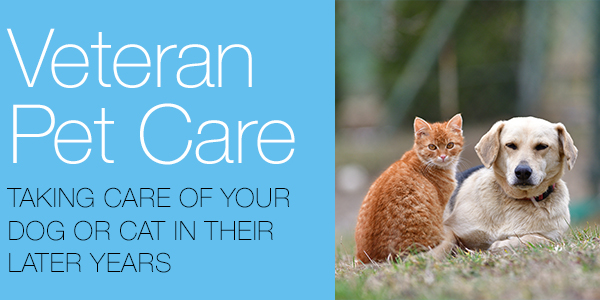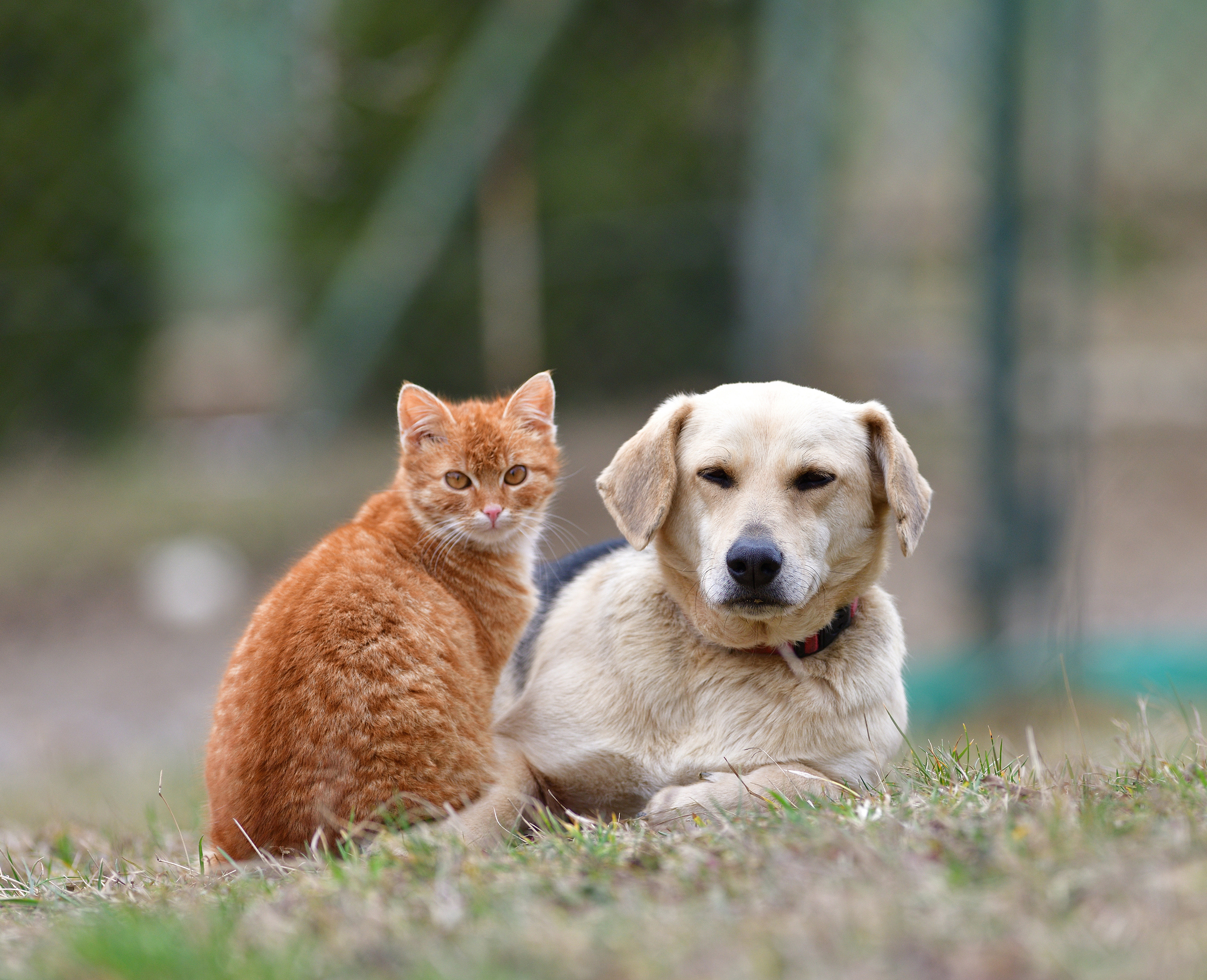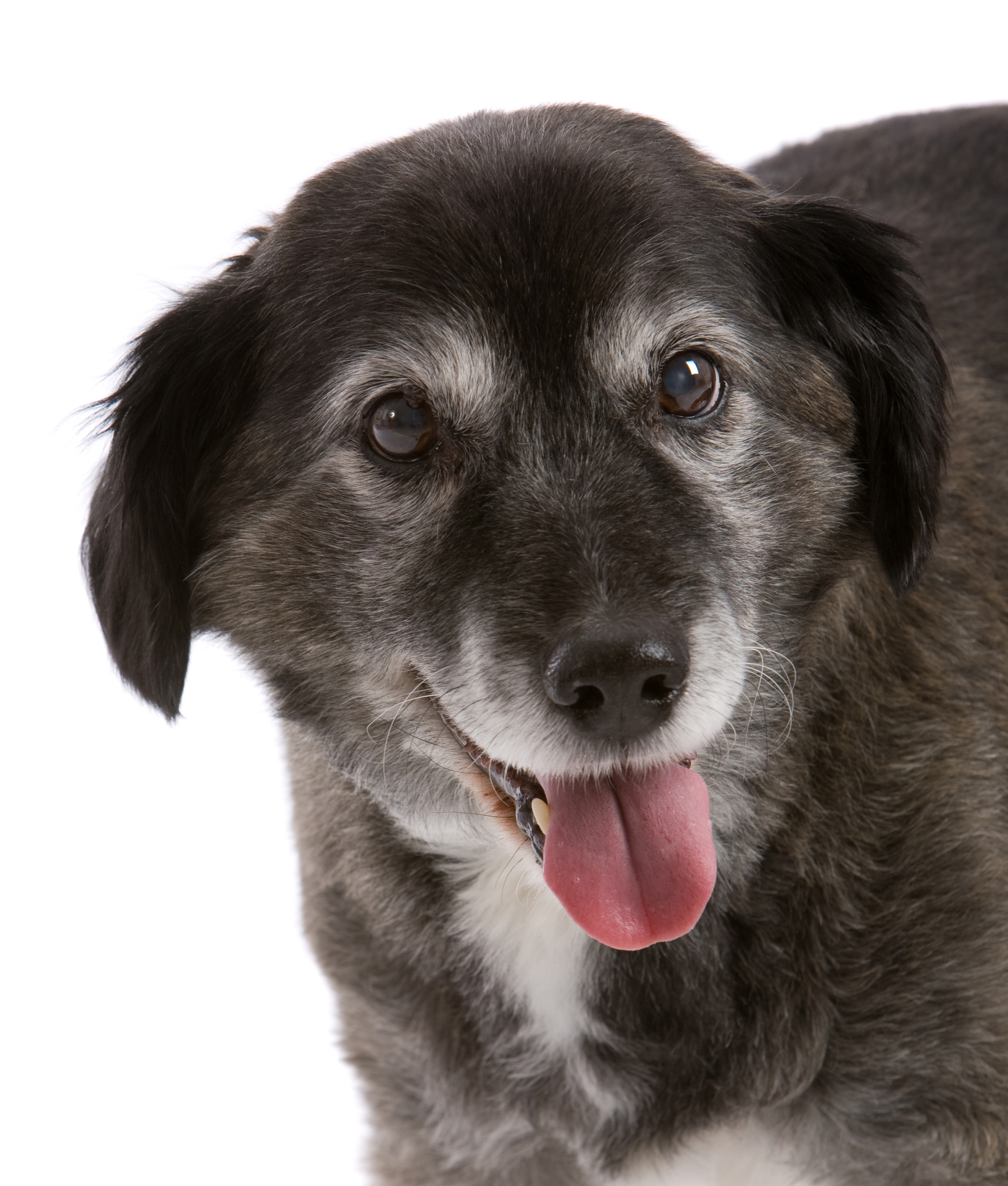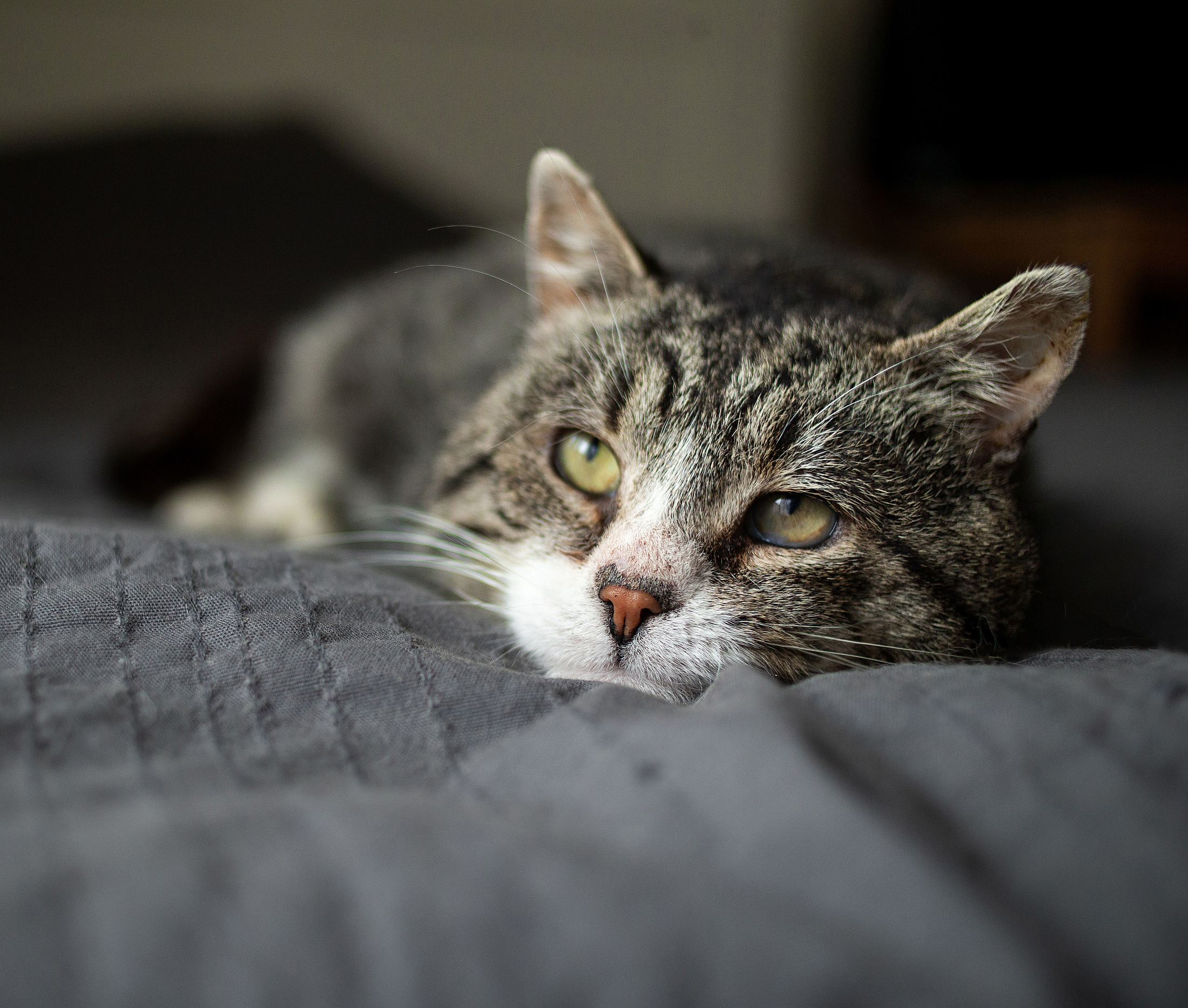




Introduction
Through recent uncertain times, one thing has come shining through, and that is our commitment to caring for our animals, no matter what. We care for all of our animals equally – particularly those companions that are often closest to us, our dogs and cats. In the UK around a quarter of all households own a dog and the same for cats, with approximately 10 million dogs and 11 million cats.
One thing is true of them all, and that is they all get older. Caring for the veteran animal is key. Much like we see in people, as advancements in veterinary medicine and basic welfare continue to improve, so we see a generally ageing population of dogs and cats. With ageing populations come the onset of age related health issues. As professionals in animal welfare it is behoven on us to help our customers improve their animal's 'healthspan' – the term given to the period of your life spent in good health and free from disease – rather than simply extending their lifespan.


Joint Care
While we do see some species specificity in age related conditions, one that is true of all – including ourselves – is the phenomenon of inflammageing, a progressive, chronic inflammatory response within the system, which is most often seen as joint changes and mobility challenges. There is likely to be an obvious change in gait, shortening of the stride and, perhaps, less willingness or ability to work the joints in the same way as they previously had. Dogs may be less willing to enjoy those long walks, or perhaps show a reluctance to jump into the car or run up stairs. In cats the signs are much subtler, indeed, not well recognised until quite recently. The reason for this is thought to be cats' evolutionary response to protect themselves, so they have become very good at hiding signs of weakness or disease. However, a trial in 2002 found joint stress evident in over 90% of cats. Cats may well be less mobile, perhaps jumping less than before, but this isn't always obvious. You are more likely to see general reduced activity, i.e. simply spending longer sleeping, decreased grooming, sometimes seen with heightened grooming and licking over the joints, and behavioural changes, such as less interaction with owners and appearing moodier.
At Natural VetCare, we recommend choosing the right synergistic blend of joint support nutrients, including glucosamine sulphate, MSM and omega 3 fatty acids, formulated to suit the lifestage and dietary requirements of the specific animal.
Natural VetCare Ageility provides all round daily nutritional care for all older dogs who want to stay active. Particular to the older dog, Ageility combines optimal levels of key joint support nutrients, with targeted nutritional support of canines. The natural antioxidant 'super-food', chlorella, works in synergy with pure Vitamin E, manganese and zinc to support the body's antioxidant defences against progressive oxidative damage. Compromised heart health is common in older dogs, hence Ageility includes the natural power of hawthorn to support a strong, healthy cardiovascular system.


Natural VetCare Senior CatCare provides all round nutritional support to maintain health and vitality in older cats. Here we see the key support nutrients combined with nutrients such as potassium chloride and omega 3 fatty acids for kidney support, as urinary health is often a major marker of ageing in senior cats. When working with natural ingredients we often find that they provide dual purpose benefits, and glucosamine is a good example here. While glucosamine is included, with MSM, to provide natural support for healthy joints in cats, we also see that it may support maintenance of a healthy urinary tract, as glucosamine is naturally found in the protective lining of the bladder, and is often deficient in cats with urinary stress.
The amino acid taurine is included, as cats are 'obligate carnivores', meaning they rely on a meat diet, and they cannot naturally produce taurine themselves. Interestingly, dogs need a more varied diet, meaning taurine is non-essential for them as they manufacture it themselves. Thus showing, that while there are similarities, cats and dogs retain their distinct differences, and we recommend advising species specific products for both.
For those animals who need a little extra support with maintenance of comfortable joints, don't forget the herbal power of Devils Claw. For dogs where comfort is the primary concern, look for Natural VetCare Relief.


Brain Health
It will come as no surprise to find that a decline in mental acuity, or your brain's 'sharpness' and health, is a common sign of ageing in most mammals. After all, how many of us have walked into a room and thought 'what did I come in here for?!'.
Changes in brain function are often most noticeable in older dogs, where cognitive stress is common. Signs include changes in their sleep patterns, often with increased sleeping during the day but wakefulness at night. Disorientation and memory loss can also be seen. Older dogs may appear 'lost' in their own environment, and if those basics of obedience are now not obeyed every time don't think they are ignoring you on purpose – they may simply have forgotten the meaning. Cats, too, commonly show changes associated with the geriatric brain, with over half of all cats aged fifteen and above showing signs of behavioural changes. In cats the signs to look for are similar to those for joint stress, reduced activity, increased sleeping and becoming withdrawn. For both cats and dogs inappropriate toileting behaviour, such as in the house, is also recognised as a key sign of cognitive stress.
Targeted nutrition to support changes associated with ageing is recommended. The adoptogenic herbs, such as Ginseng, Ginkgo and Immortality herb have attracted a lot of interest across species research, including in people, for their ability to help the brain adapt to those changes – hence their description as being 'Adaptogens'. These adaptogens work in synergy with natural antioxidants, which are so important as oxidative changes, leading to free radical stress, are seen in the ageing brain, and research shows that antioxidants can support healthy cognitive function. While omega 3 fatty acids also provide an important role, alongside the antioxidants, to support the body's own anti-inflammatory response.
Natural VetCare Ageility, is the perfect all round choice for older dogs, as alongside the joint support discussed above, Ageility also provides herbal support for mental acuity. One of the things we love about herbs is that, often, the name of the herb tells you what it does. Here we find a very good example of that, in ‘Immortality herb’. Of course, we’re not promising your dogs will become ‘immortal’, but we can certainly see how this particular herb has, quite literally, built a name for itself as a powerful adaptogen.
Natural VetCare Senior CatCare, like Ageility, provides all round support for the older pet. To maintain that natural curiosity that cats are famous for, Senior CatCare includes Ginseng, working alongside natural omega 3 fatty acids, with antioxidants including Chlorella, Seaweed, Selenium and Vitamin E.
Selected References
- Bellows et al (2016) Aging in cats: Common physical and functional changes. Journal of Feline Medicine and Surgery. 18(7) p.533-50
- Day M.J (2010) Ageing, Immunosenescence and Inflammageing in the Dog and Cat. Journal of Comparative Pathology. 142 Supp1, p S60-S90
- Hardie E, Roe S.C & Martin F.R (2002) Radiographic evidence of degenerative joint disease in geriatric cats: 100 cases. Journal of the American Veterinary Medical Association. 220(5) p.628-32
- Laye S et al (2018) Anti-inflammatory effects of Omega-3 fatty acids in the brain: Physiological mechanisms and relevance to pharmacology. Pharmacological Reviews. 70(1) 12-38
- Siared-Altman M.H et al (2020) Relationships of inflammageing with circulating nutrient levels, body composition, age, and pituitary pars intermedia dysfunction in a senior horse population. Veterinary Immunology and Immunopathology Vol 221, 110013
- Wallis L.J et al (2018) Demographic change across the lifespan of pet dogs and their impact on health status. Frontiers in Veterinary Science. 23. https://doi.org/10.3389/fvets.2018.00200
- Willis L.M (2009) Modulation of cognition and behaviour in aged animals: role for antioxidant – and essential fatty acid – rich plant foods. The American Journal of Clinical Nutrition. 89(5) p1602s-1606s
CONTACT
Copyright © Natural VetCare 2019
Security & Privacy | Cookies | Terms & Conditions





